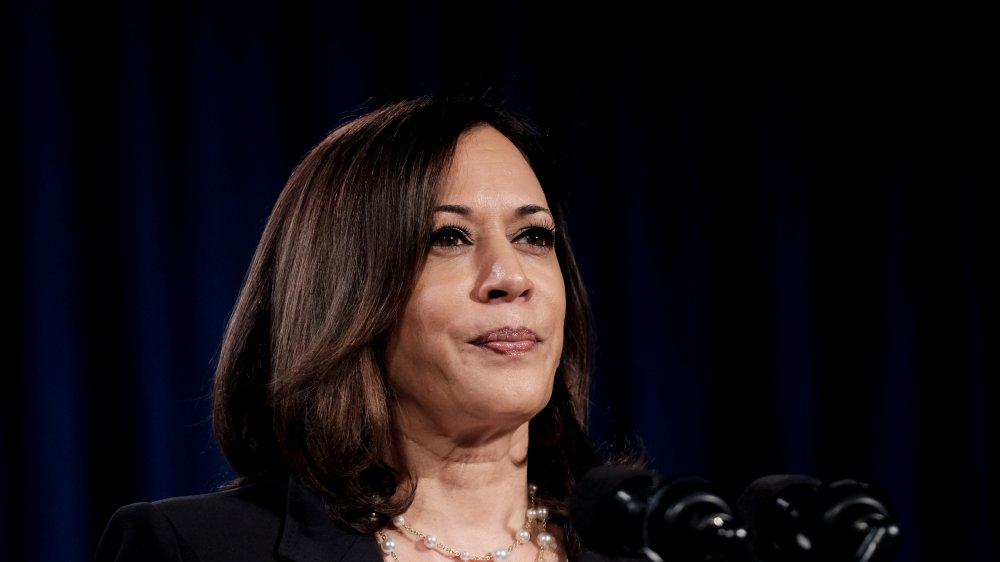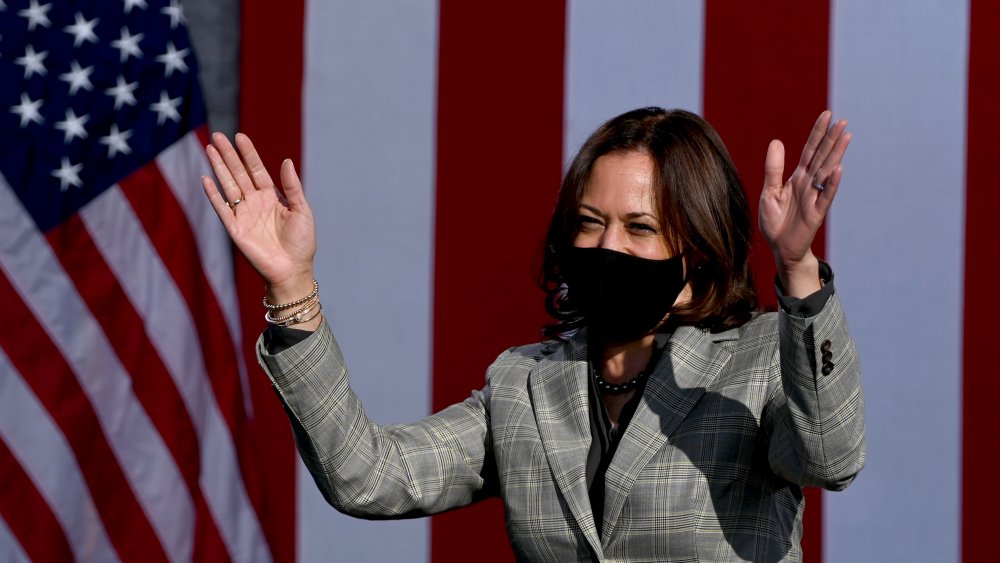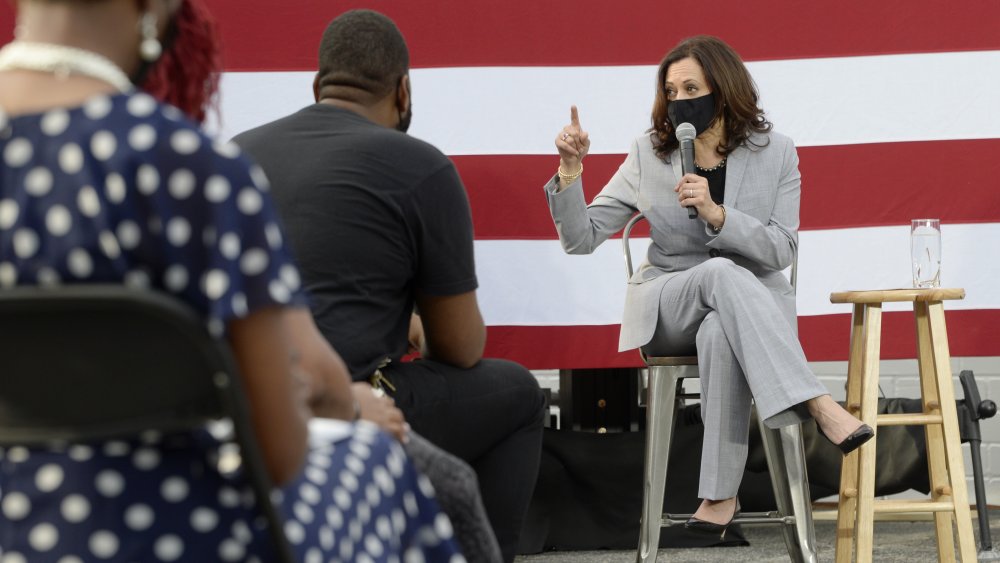Kamala Harris' Media Coverage Reveals A Surprising Truth
When Joe Biden announced Kamala Harris as his running mate, it made history. Harris is the first African-American woman and first Asian-American on the presidential ticket for a major political party. Turns out, the media is treating her like no other candidate before — but not in a good way. A report from Time's Up Now, a non-partisan, independent, charitable organization, found that 25 percent of the reporting on her including sexist and/or racist stereotypes and tropes.
To get that info, they hired a research and analytics company to take a deep dive into the media coverage of the announcement of Harris in 2020, and what makes it more interesting is that they compared it to the coverage given to the announcements of Tim Kaine and Mike Pence in 2016. The results weren't pretty.
"When women, and especially women of color, run for office, they are subjected to a double standard that has nothing to do with their qualifications and everything to do with this country's history of sexism and racism," said Tina Tchen, president and CEO of Time's Up Now (via The Independent).
Kamala Harris' media coverage shows a double standard
Shortly after she was announced, in an interview with Fox Business News, Trump referred to her to the media at various points as "nasty," "mad woman," and "so angry" (via NBC News). He didn't use the exact phrase angry Black woman, but it evoked the long-lasting and problematic trope. Author of The Sisters Are Alright: Changing the Broken Narrative of Black Women in America, Tamara Winfrey Harris described the trope as rooted in slavery: "Black women were expected to work in the field alongside men and as hard as men, so there was this idea that Black women were sturdier and less feminine than other women." And Winfrey Harris added that the negative portrayal was further cemented with the 1950s TV show Amos 'n' Andy with the character of Sapphire who was portrayed as nagging and aggressive. All of it adds up to present black women as one-dimensional and unfit for office.
Researchers at Time's Up Now found that, "Nearly two-thirds (61 percent) of analyzed coverage mentioned race or gender compared to just five percent of coverage for then-Gov. Mike Pence and Sen. Tim Kaine," which they say shows white men are perceived as inherently belonging in office (via Time's Up Now). Since America is most familiar with a majority of white men in political office, it can unconsciously be seen as the way that it is and will be, which could make someone like Harris seem like a novelty.
Kamala Harris' experience is taking a backseat to her background
Independent of Harris' politics, there's no denying that she has experience. She's a California senator, spent six years as California's attorney general, and she was district attorney and deputy district attorney before that. However, instead of a focus predominantly on her political experience, "Over one-third (36 percent) of media coverage focused on Sen. Harris' ancestry" and less than 5 percent of reporting on Kaine and Pence focused on their ancestry (via Time's Up Now).
Her ancestry is worth mentioning considering her history-making status — but Time's Up Now suggests it's a problem when it's used as a political weapon. Trump also brought up the issue of birtherism, when he said at a press conference in August, "...they're saying that she doesn't qualify because she wasn't born in this country" (via BBC News). If it's said at a press conference, it, of course, ends up in the press. So, the problem spreads quickly and becomes a focal point, even if the media is decrying the idea.


